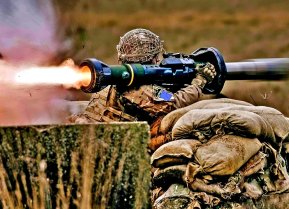The Eurofighter Typhoon Is the Fighter Plane Every Nation Wants
Italy is considering expanding its fleet of Eurofighter Typhoons, joining Germany and Spain in bolstering their air forces with the twin-engine, supersonic, multirole fighter.
Summary: Italy is considering expanding its fleet of Eurofighter Typhoons, joining Germany and Spain in bolstering their air forces with the twin-engine, supersonic, multirole fighter.
-Spain has already initiated efforts to acquire 25 more Typhoons, adding to its existing 68, with additional deliveries expected by 2026.
-BAE Systems is pursuing sales of up to 200 more Typhoons, focusing on enhancements to keep the platform relevant into the 2040s.
-Middle Eastern nations, including Saudi Arabia and Qatar, are also interested in acquiring more Typhoons as regional tensions, particularly with Iran, escalate.
Eurofighter Typhoon: Three Decades of Service and Growing Demand
NATO member Italy may be poised to increase the number of Eurofighter Typhoons operated by its air force, joining other NATO allies Germany and Spain, which have sought to make additional purchases of the twin-engine, supersonic, canard delta wing, multirole fighter. Last September, Madrid initiated its efforts to acquire an additional 25 Eurofighter Typhoon, along with simulators and maintenance support, by allocating 4.5 billion euros ($4.8 billion).
Spain already operates 68 Eurofighters, The Defense Post reported last year, and purchased another 20 in 2022 with deliveries expected to begin in 2026.
However, BAE Systems – part of the consortium of aviation firms that developed the fighter along with Airbus and Leonardo – isn't simply waiting for potential customers to line up either. A s reported by trade magazine Aviation Week earlier this month, the aerospace company has remained aware that it must enhance the Eurofighter's capabilities to ensure that it will remain relevant into the 2040s and beyond.
To that end, it is pursuing sales of up to 200 additional Typhoons as the platform continues to be upgraded.
"Germany [and] Spain are actively looking at more core aircraft buys... and Italy [as well] going into a parliamentary process over the summer and looking at a potential further buy," David Hulme, Typhoon product strategy director and Eurofighter project director at BAE Systems, told Shephard Media at the company's Warton, UK, facility earlier this month.
Countering Iran
Currently, several Middle Eastern nations, including Egypt, Kuwait, and Saudi Arabia as well as NATO member Turkey are now among the nations that have shown interest in adopting the Eurofighters.
The Saudis have been exploring a variety of options, and at one point had also considered the French Dassault Rafale – and there is now speculation that Riyadh could obtain both European-made fighters, along Chinese aircraft that have also been in its sights. It has sought to acquire additional aircraft as Iran extends its influence in the Middle East.
In addition, Qatar – which remains a regional rival with both Saudi Arabia and the United Arab Emirates – has sought to increase the size of its air force. It now operates three dozen F-15QA (Qatar Advanced), 36 Rafales, and 24 Eurofighters in service. As Forbes.com reported in January, it was a "truly manic buildup for a country with a mere 313,000 citizens!" But as the wealthiest nation in the world, it can also afford to splurge – and as the Lockheed Martin F-35 Lightning II remains off the table, Doha is exploring alternatives.
Eurofighter Typhoon: Three Decades in Service
As previously reported, the development of the Typhoon began in 1986, with the establishment of the Eurofighter consortium that involved the three countries – Germany, Italy, and the UK – that had worked to develop the Panavia Tornado.
This past March marked the 30th anniversary of the Eurofighter Typhoon's maiden flight, which occurred in Bavaria, Germany. As of last November, a total of 592 of the advanced aircraft have been produced.
The multirole Eurofither Typhoon is now in service with the UK's Royal Air Force, the German Luftwaffe, the Italian Air Force, and the Spanish Air & Space Force. Soon it could be operated by even more nations around the world.
Author Experience and Expertise: Peter Suciu
Peter Suciu is a Michigan-based writer. He has contributed to more than four dozen magazines, newspapers, and websites with over 3,200 published pieces over a twenty-year career in journalism. He regularly writes about military hardware, firearms history, cybersecurity, politics, and international affairs. Peter is also a Contributing Writer for Forbes and Clearance Jobs. You can follow him on Twitter: @PeterSuciu. You can email the author: [email protected].
Image Credit: Shutterstock.


